Millions will settle down for the weekend with a pint or glass of wine, with many having a good few more as they enjoy a night out on the town or even just having a relaxing time at home.
But the idea of having ‘just one drink’ is a dangerous one, according to Dr Sermed Mezher.
The GP, who worked for the NHS for six years, has spoken out about the idea of having ‘just one’ drink given how much damage it can actually cause you when it comes to cognitive decline.
“Alcohol can damage your brain more than dementia,” Dr Mezher explains on TikTok.
“In fact, a recent study from the University of Oxford showed there was no safe drinking limit and that was on over 25,000 adults studied by [Dr Anya] Topiwala and colleagues.”
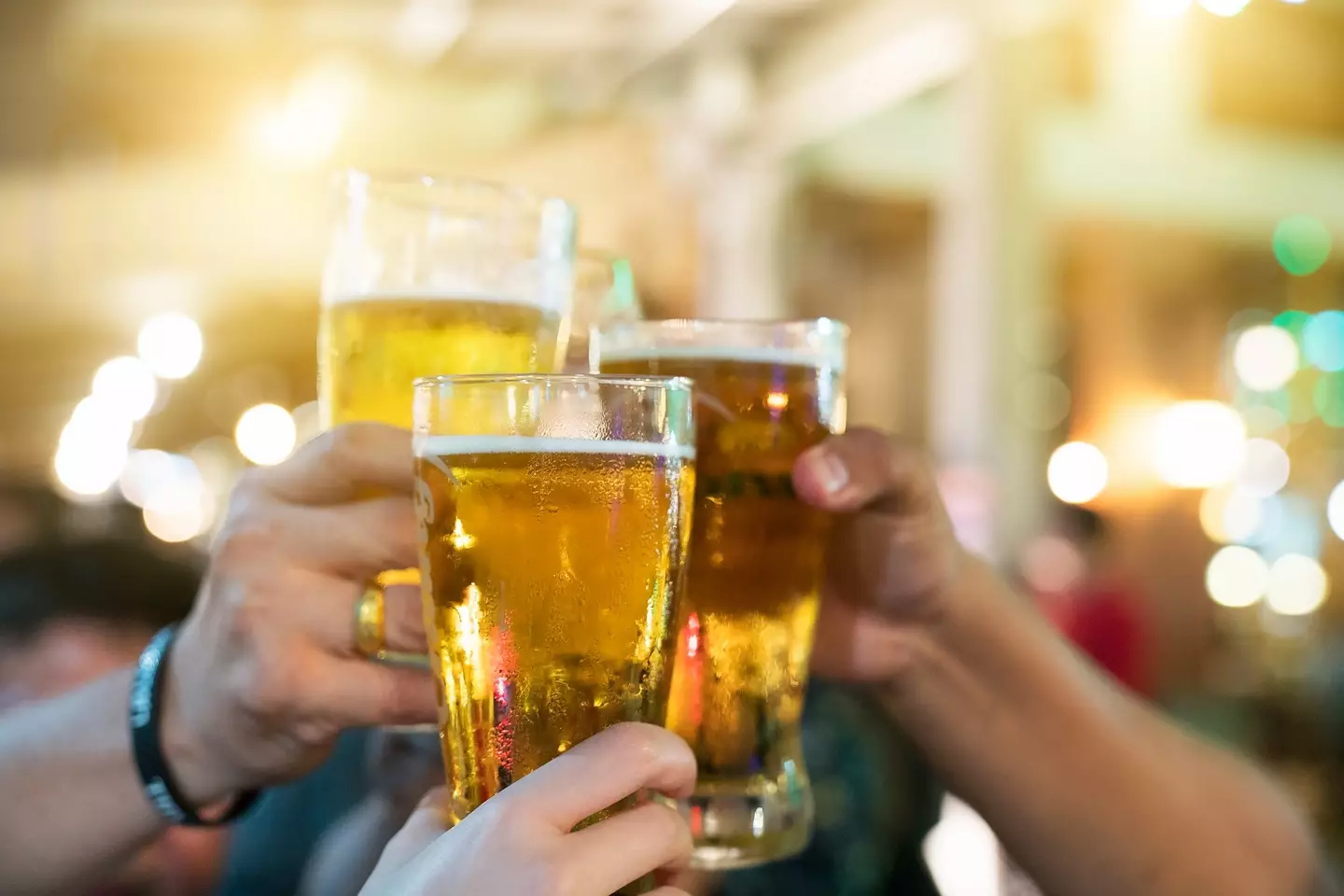
Just one unit of alcohol regularly will damage your brain, the research found (Getty Stock Images)
He adds: “They found quite clearly that the more you drink, the thinner the cortex part on the outer part of the brain actually got, which is really important for executive function; things like consciousness, planning, memory.”
The study, published in May 2021, focused on more than 25,000 British adults with an average age of 54.
With brain scans used to measure the impact of a moderate alcohol consumption rate on the health of their brains, it found a link between drinking any amount of alcohol and the health of your brain getting worse.

The brain can repair itself, thankfully (Getty Stock Images)
And it doesn’t matter what you drink, with the research stating: “We found no evidence to suggest alcoholic beverage type confers differences in risks to the brain. This supports the hypothesis that it is ethanol itself, rather than other compounds in the beverage, that is on the biological pathway to damage.
“The associations of wine-drinking with higher educational level and socioeconomic status may explain the apparent health benefits.”
Dr Mezher added that while ‘we know all our brains will naturally deteriorate with age’, by consuming just one unit of alcohol a week takes you to a quicker rate of cognitive decline.
It’s not all doom and gloom, though. And that’s because the body is a marvellous thing.
“Those who like to pick their poison, though, it’s not all doom and gloom,” he explains.
“That’s because crews and colleagues found that within just a couple of weeks of stopping drinking, your brain activities stem cell circuits that can regenerate neurons that have been damaged with long-term alcohol use.”
For those who have drank ‘heavily and persistently’, there’s ‘only so much benefit it can have’, Dr Mezher adds.
“But stopping early will give you the best chances,” he says.
Featured Image Credit: TikTok / sermedmezher2 / Getty Stock Images
Topics: Health, Alcohol, NHS, UK News, TikTok, Social Media, Viral
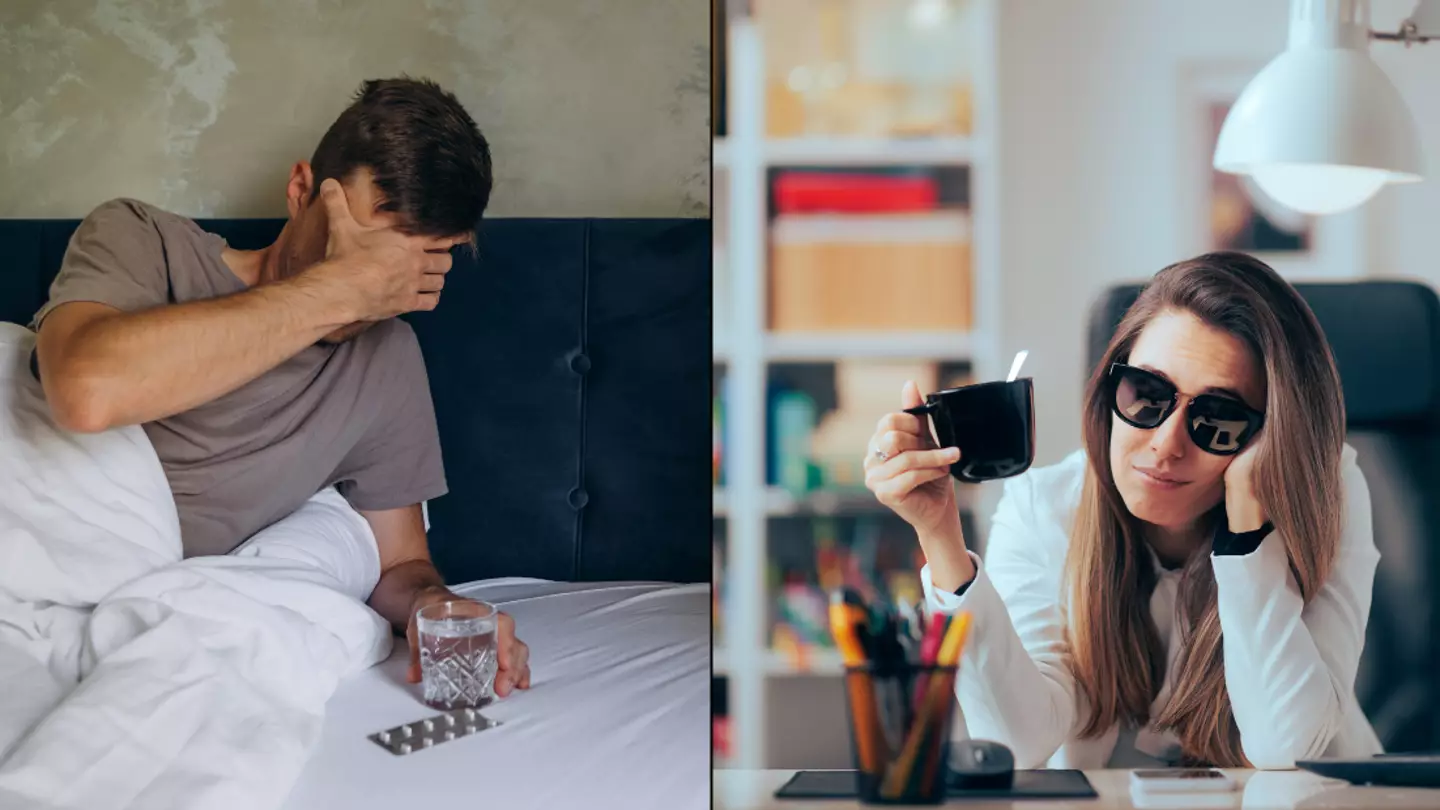
Drinking alcohol is something billions of us do on a regular basis, with one in three people on Earth having a tipple when they feel like it. Sometimes, though, we take that a little too far and are left feeling the regret the morning after.
If that’s you, don’t worry, it’s been me too. And trust me when I say things change big time when you are in your thirties compared to your twenties.
Long gone are the university days where you might have been going out three or four times a week. But every once in a while when you do have that big blow out, you aren’t half left feeling it.
Dr. Giuseppe Aragona, GP and Online Doctor for PrescriptionDoctor.com, sat down and explained to Cosmopolitan the major different to your health and body when you drink at the age of 25 and then a decade later at 35.
Impact of drinking alcohol in your twenties
“Most people would believe that it’s okay to drink excessively in your twenties because you are young, and your body is able is able to manage the amount of alcohol in your system,” says Dr. Agarona.
“However this is not the case and in actual fact, drinking a large amount in your twenties – also known as binge drinking – can actually pose more risk to your future self.”
The doctor explains that those who drink excessively or ‘have larger dependence on alcohol in their early adulthood and twenties’ are more likely to suffer from a range of physical issues when they reach their fifties and sixties.
He says: “Your twenties are also a key point in your life when your dependence on alcohol will have a knock-on effect and will likely cement your relationship with alcohol through into your thirties and forties.”
As well as future injuries, you could be actively harming your development with it ‘still occurring in your body in your late teens and early-to-mid twenties’, Dr. Agarona says.

Been there (Getty Stock Images)
“For example, excessive alcohol consumption can largely increase the chances of developing oral cancers in young people, as well as heart and liver disease,” he explains.
“A large alcohol consumption can also contribute to the development of osteoporosis in young people as the alcohol stops the bones ability to absorb calcium, a vital resource for healthy bones.”
And to make the matter more serious, there’s a serious risk of reducing fertility and, in worst case scenarios, overdosing.
He explains: “Binge drinking is especially common in young adults and puts them at an increased risk of blood poisoning. The symptoms of alcohol poisoning are similar to that of an extreme hangover; nausea, vomiting and loss of consciousness, and so are not recognised as an emergency, and without urgent care alcohol poisoning can lead to seizures and possible death.
“Drinking excessive alcohol in your twenties can also reduce your fertility and cause damage to your reproductive organs. In rare cases ovulation can stop altogether.”
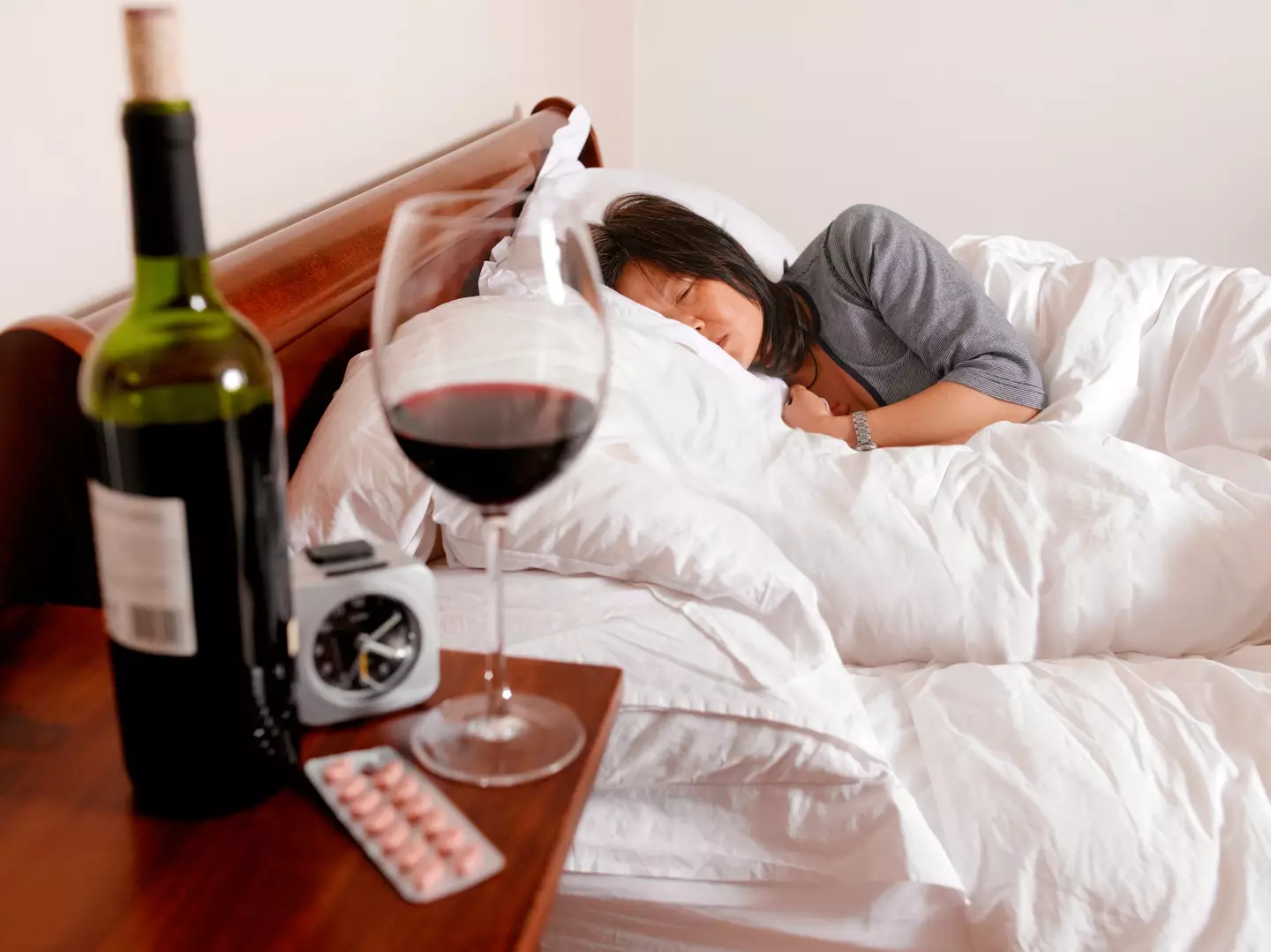
Never taken the booze to bed with me, mind (Getty Stock Images)
Impact of drinking alcohol in your thirties
It probably comes as little surprise that your hangovers are much worse in your thirties, compared to the decade before, with you potentially being ‘knocked out for days’ as a result of a binging session.
There’s also an increased chance of a two, or even three, day hangover (which this author would not wish on anybody).
As you get older, your ability to metabolise alcohol declines, this decline is usually found from your late twenties and into your thirties.
“Older people have higher blood alcohol concentration than younger people; this means that as you age you have a lower volume of total body water and slower rates of eliminating alcohol from the body,” Dr. Agarona says.
“So essentially, as you reach your thirties, your liver and body’s ability to eliminate alcohol from your system takes longer and in return you may find that your hangovers last longer, and even one night of drinking can leave you knocked out for days.”
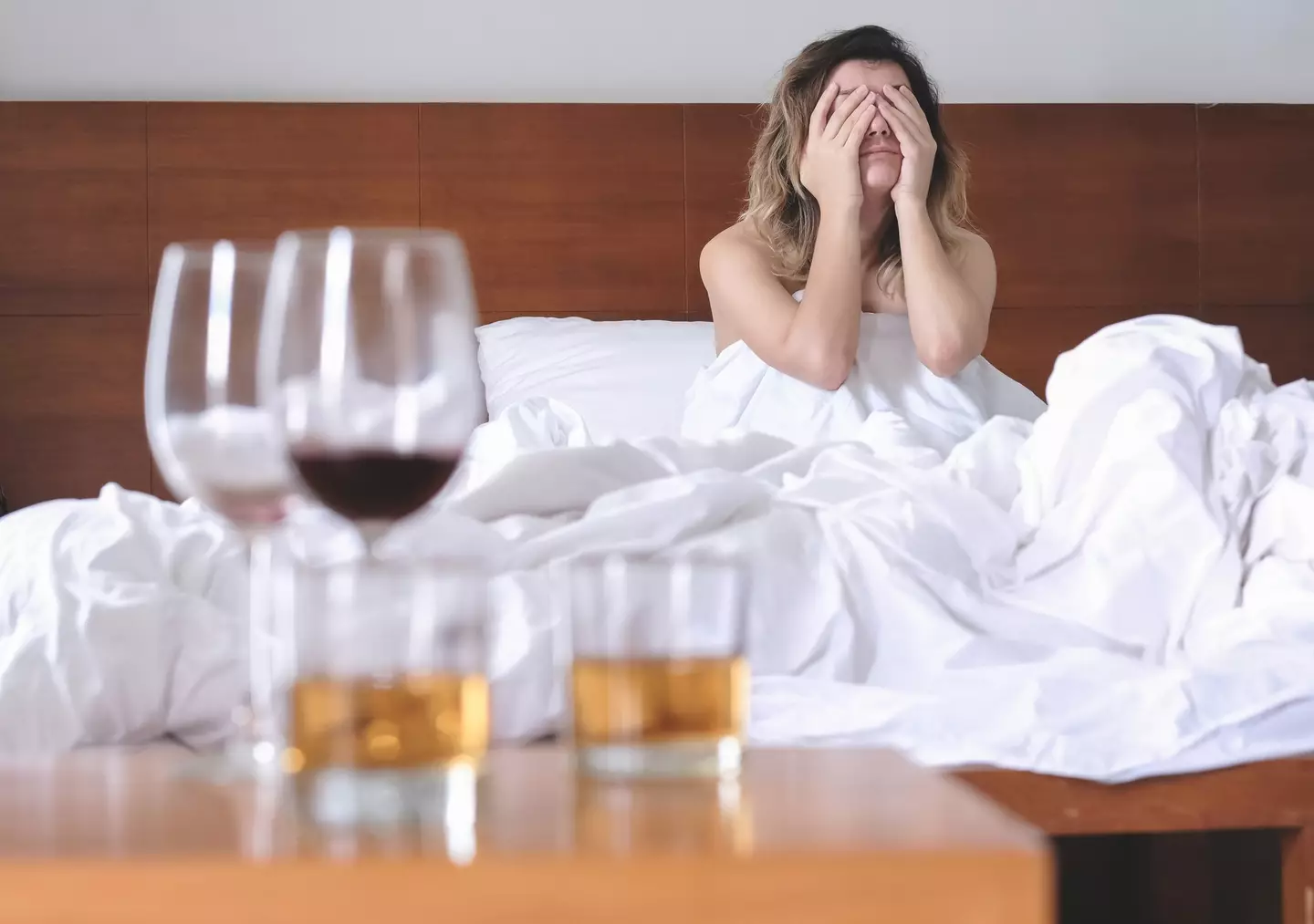
The regret is real (Getty Stock Images)
Another side effect could be be slower reflexes and your eyesight and hearing not working as they once did. Dr. Agarona explains this could lead to you feeling ‘high, dizzy or intoxicated’ even if you’ve only had a few alcoholic beverages.
He says: “Drinking can also affect many medical conditions which are common among older people such as high blood pressure.
“Furthermore, in your thirties you may start to take more medicines and supplements than younger people, and mixing alcohol with prescription drugs can be incredibly dangerous.”
Dr. Aragona also explains that your mental health could deteriorate given that alcohol is a depressant, potentially worsening symptoms of anxiety, sleeping disorders, and depression.
Featured Image Credit: Getty Stock Images
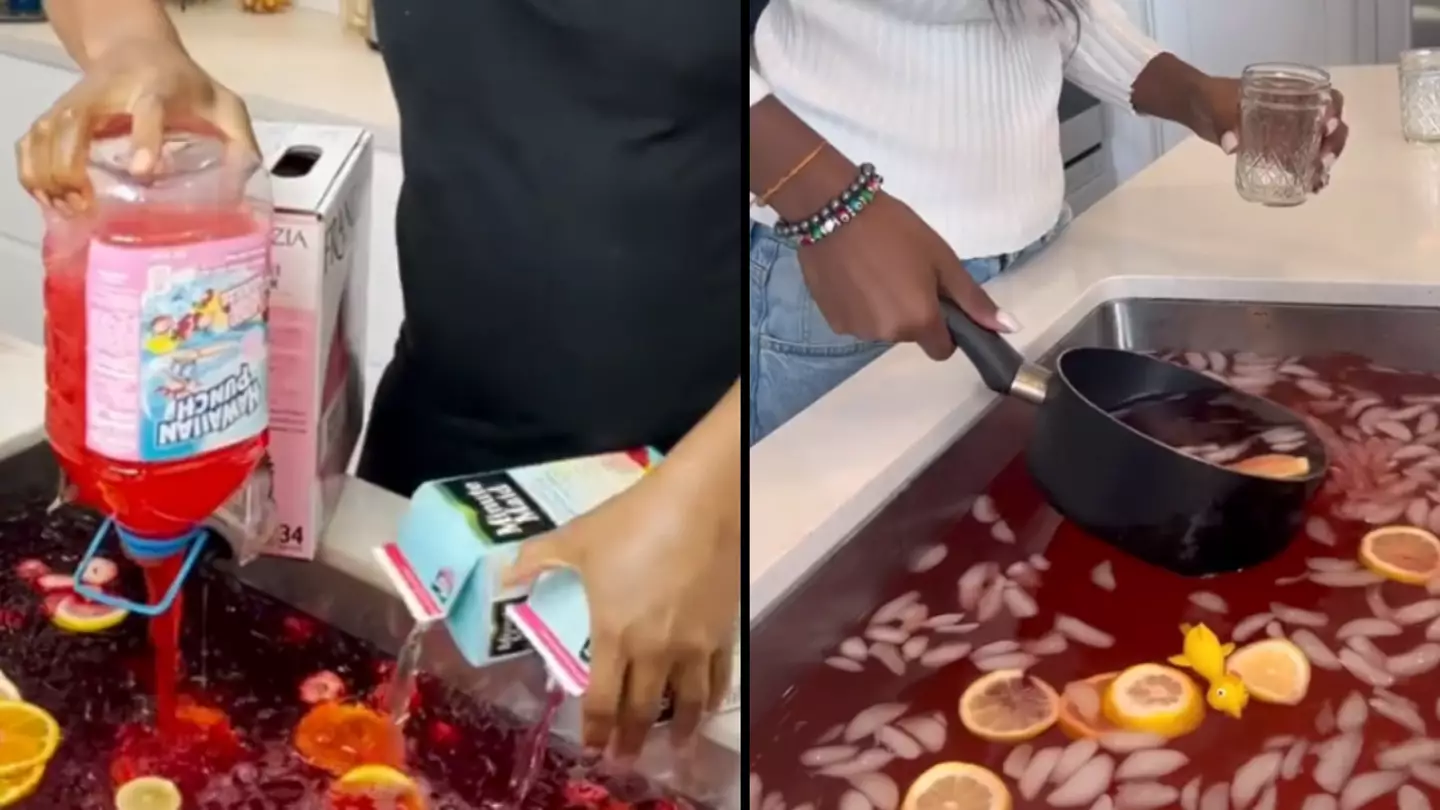
TikTok is going crazy for yet another viral trend. But it is one that could land you in hospital with a serious illness, according to one doctor who knows what he is talking about.
From lip-syncing and viral dances to GRWM and unreal food hacks, there’s tonnes of content fighting to go viral on a daily basis.
With summer in full swing (despite the UK weather saying otherwise), one recent trend has focused on creating huge cocktail mixes. And the place they’re made? The sink.
A mass 145 million posts have been made on TikTok when it comes to the ‘sink drink’ trend.
Among the most-watched videos is one from @thetipsybartender – real name Skyy John – who is known for his intense boozy recipes. Racking up more than 58 million views, Skyy proceeded to make his famous ‘Jungle Juice’ recipe in his kitchen sink.
And while there’s no doubting the drink sounds exactly the type of thing that you would want on a sunny afternoon to cool you down, the location of where it was being made had a few people a little wide-eyed.
One TikTok user wrote: “I’m sorry, excuse me? In the sink?”
Another said: “It looks good but not in the SINK.”
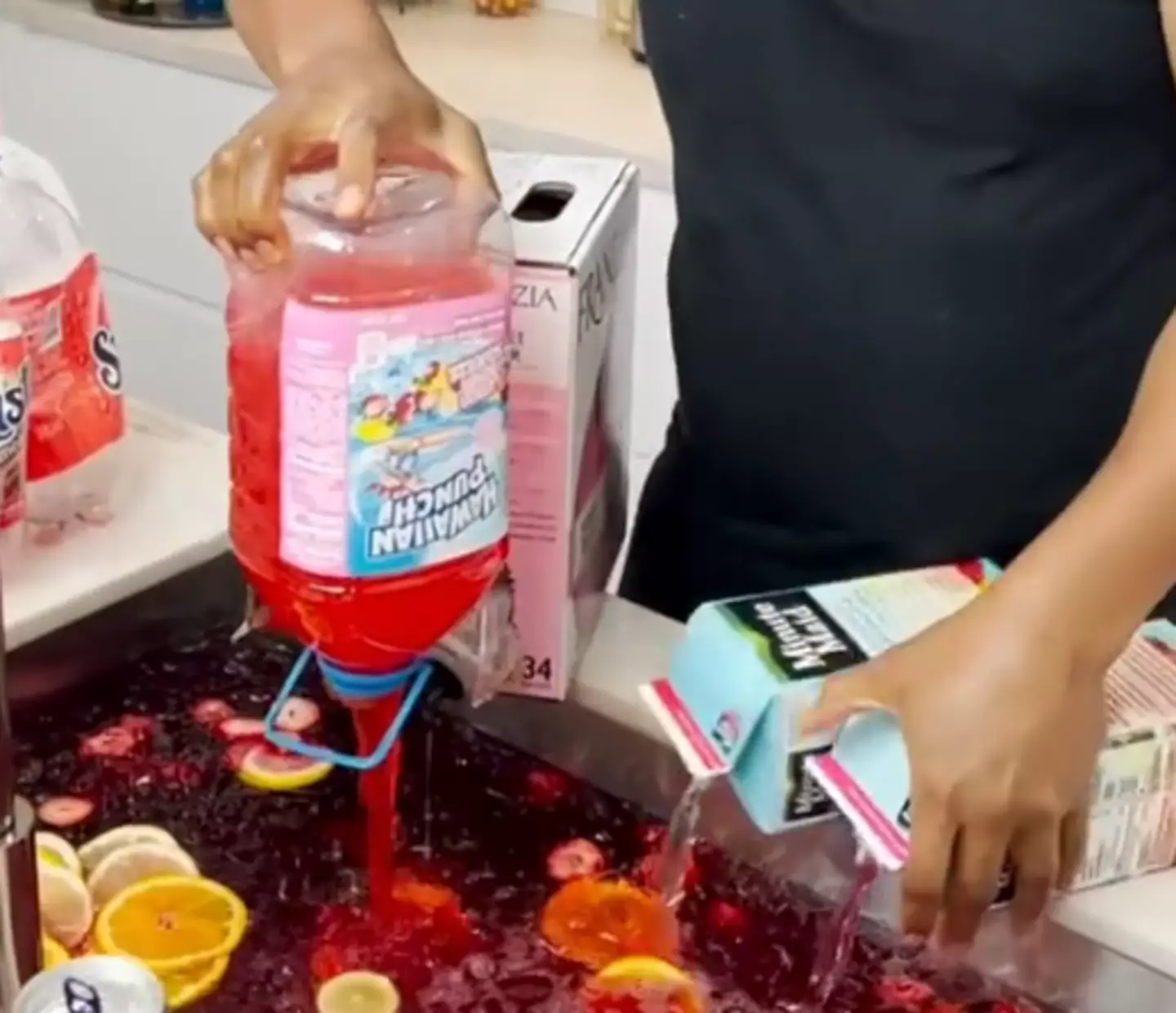
The Tipsy Bartender creating his famous jungle juice in his sink (TikTok / realtipsybartender)
And a third said: “I would definitely try this but not out of the sink.”
He’s not the only one to get involved in the trend, with TikToker @starandshontwins using her sink to make a huge vat of Kool-Aid.
“In the sink, nasty,” one said despite the creator stressing the sink was clean.
But Dr Gareth Nye, a Programme Lead for Medical Science, has revealed to Magnet Kitchens that doing this in the kitchen sink is in fact one of the riskiest places in the home when it comes to germs and nasties.
And we’re talking about bacteria and illness that could land you in hospital depending on how badly you might get got.
Dr Nye says: “The kitchen sink is normally considered one of the riskiest places in the kitchen as it’s the place we deposit cooked and uncooked food waste, and wash our hands in after touching raw meats and other spillages.
“A study from The National Sanitation Foundation found that 45 percent of kitchen sinks tested positive for coliform bacteria such as E. coli and 27 percent contained moulds which are known to cause allergic reactions and respiratory issues.”
Dr Nye added: “Also, most drains have some form of blockage, usually from grease or fat. This creates a breeding ground for bacterial growth such as E. coli and Salmonella which can make their way up into the sink area.
“Ultimately, you are using your kitchen sink to get rid of things and you are likely facing millions of bacteria in and around the sink and plug hole.”
If you truly want to use your sink for something similar when it comes to entertaining and making drinks, Dr Nye suggests using the sink as an ice bucket to cool down your drinks throughout the night.
Featured Image Credit: TikTok / realtipsybartender / starandshontwins
Topics: Health, Viral, TikTok, Social Media, Alcohol, Food And Drink, Entertainment
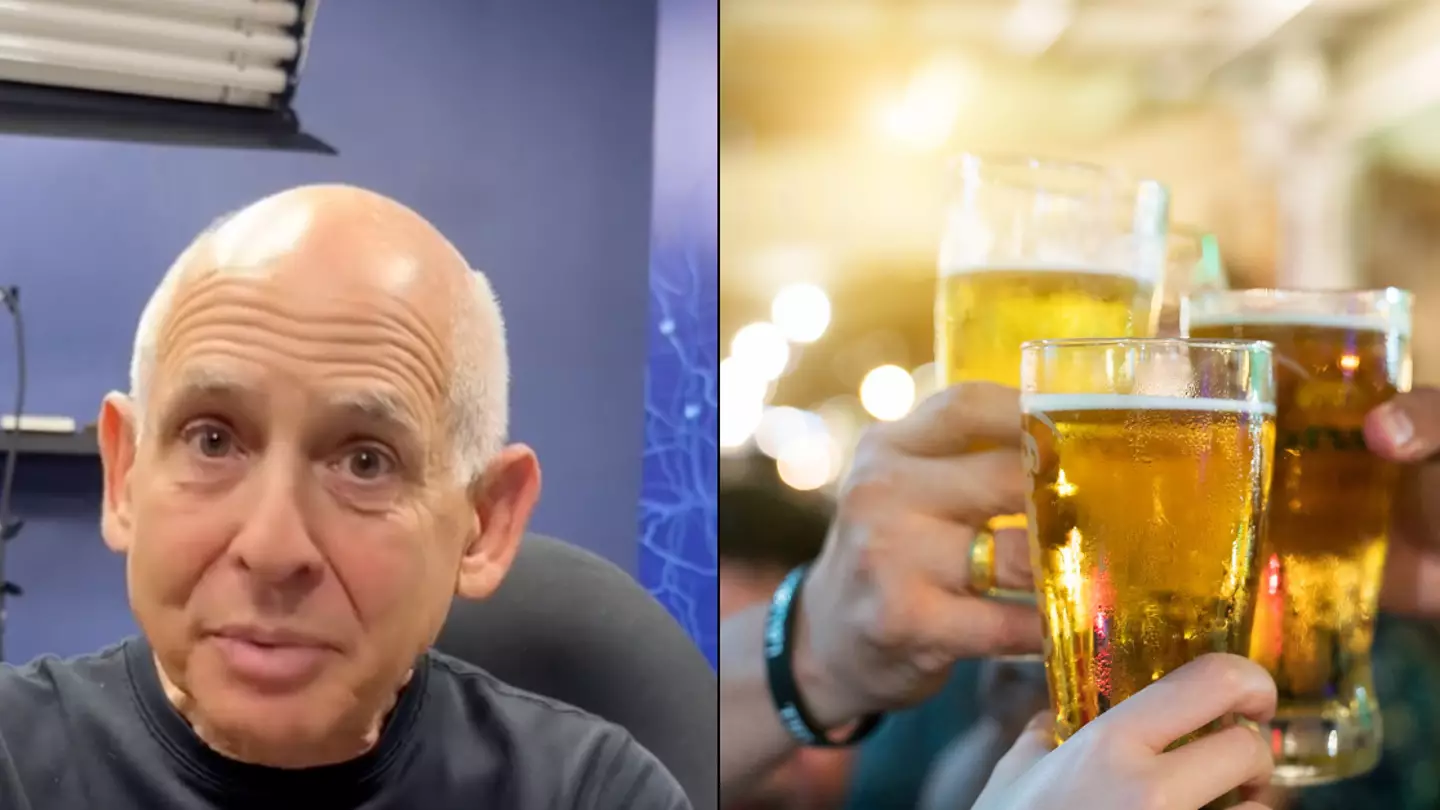
A psychiatrist has shared why he doesn’t drink alcohol after seeing certain signs in his patients.
Having a pint after a long day is pretty much a British staple, but as we all know, it might not be the best thing for your health in the long term – despite how good or relieving it can feel at the time.
But it turns out that the good feeling that comes from a few drinks can actually be detrimental to our mental health if we’re not careful – according to an expert.
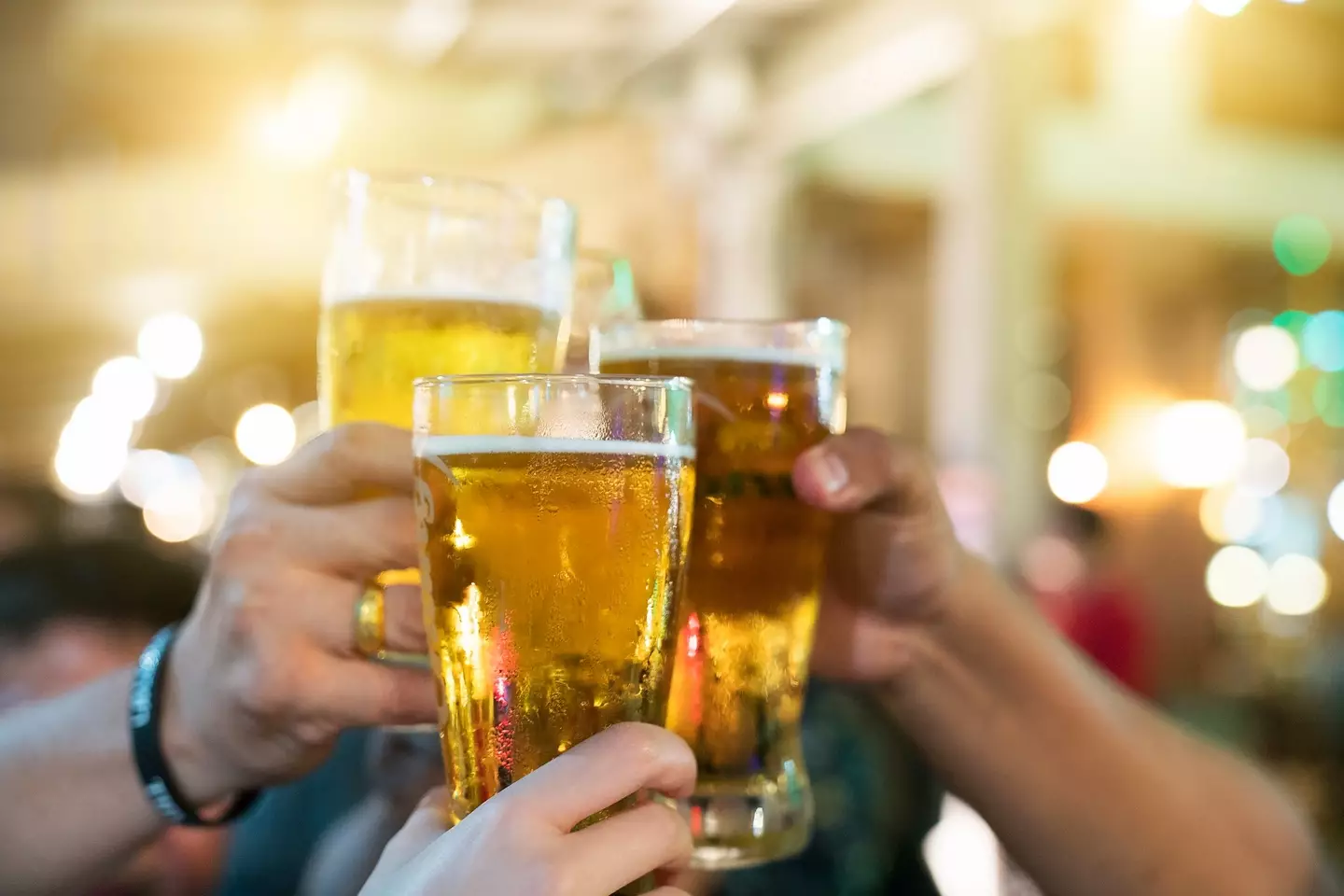
A lot of people like a drink, but is it the best thing for you? (Getty Stock Photo)
Dr Daniel Amen, a psychiatrist and 12 time New York bestseller, took to his TikTok to share exactly why he doesn’t drink with his 2.8 million social media followers, in not just one but two separate videos.
He explained in his first video that he ‘likes his brain’ and ‘doesn’t like being out of control’, explaining that scans of drinkers’ bodies that he’s seen have all not been ‘healthy’.
Dr Amen also spoke about a TV show he did called The Truth About Drinking, where they took a guy who was ‘drinking a lot’, helping him get sober, before getting him drunk and scanning his brain.
He says the scan showed that his ‘frontal lobes went away’ – with that part of the brain focusing on ‘judgement, impulse control, organisation planning and empathy’, which you ‘want all those things’.
His second video garnered over 134,000 views on TikTok, where he gave a candid answer to why he doesn’t drink alcohol.
In the description, he wrote: “Alcohol free is the way to be!”
Dr Amen then started explaining: “So why I don’t drink alcohol, part 2,
“I never want my moral supervisor to go on vacation, I like the decisions that I make and I have to tell you, it’s every week in my clinical practice, somebody’s in trouble because of alcohol.”
The health expert continued: “They said something they shouldn’t have said, they did something they shouldn’t have done, their empathy was dropped.”
He likened drinking alcohol to your moral supervisor taking a ‘coffee break’ when really, they should always be there with you.
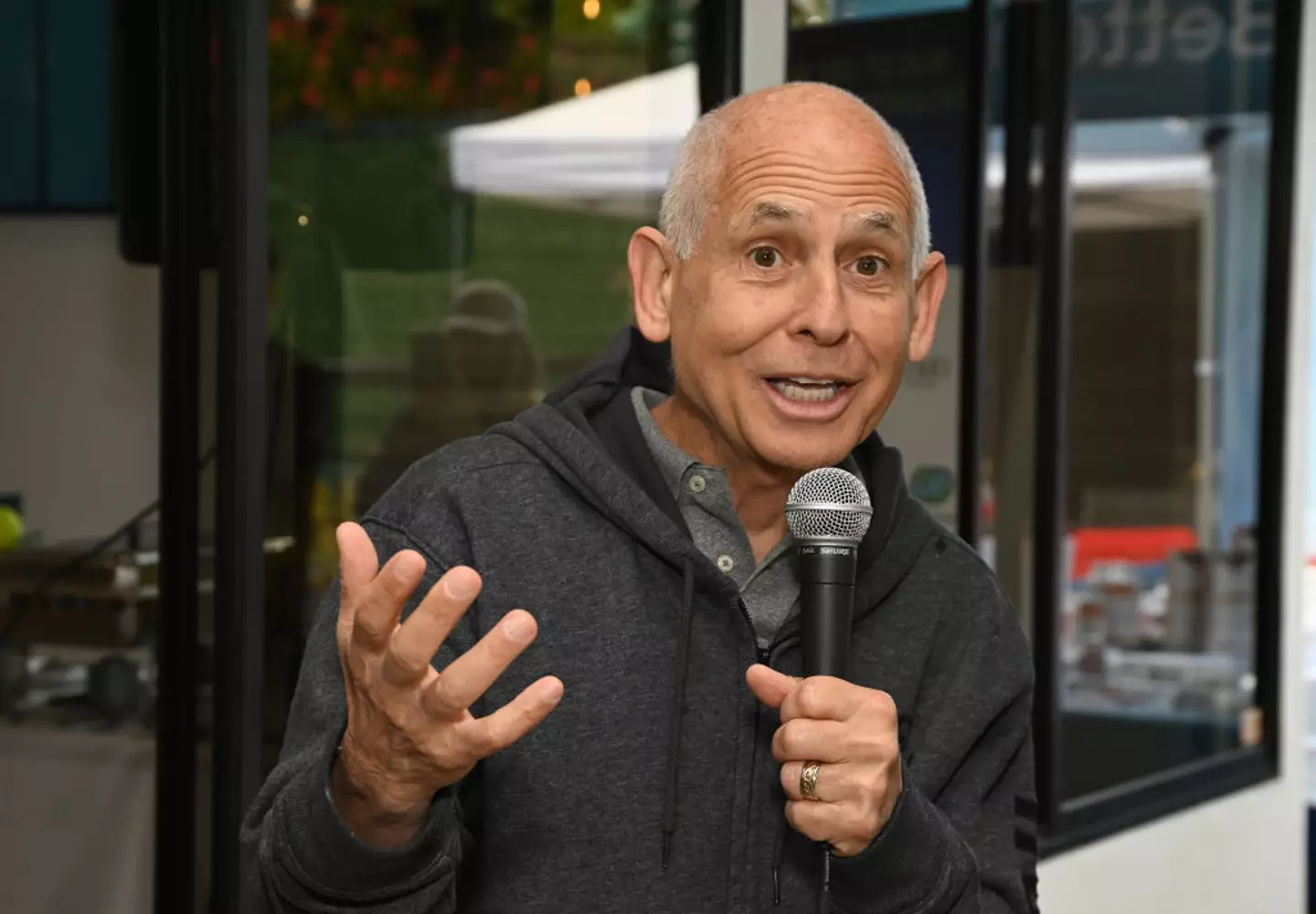
Dr Daniel Amen (Michael Tullberg/Getty Images)
“Now I understand why people drink, because it sort of takes that moral supervisor and put some away so you can be a little bit freer,” he admitted.
“I want you to learn how to be free, keeping the moral supervisor around.”
Viewers left their thoughts in the comments below, with one user joking: “My moral supervisor drug of choice is snickers.”
Another revealed: “I’m 63 and decided at 17 not to drink alcohol. I’ve had people try to get me to drink my whole life.
“My mom once said I was afraid of losing control. A family member said ‘Don’t you just want ONE?'”
A third posted: “Thank you for sharing. More people need to hear this.”
Featured Image Credit: TikTok/docamen / Getty Stock Photo
Topics: Mental Health, Alcohol, Health, TikTok, Social Media
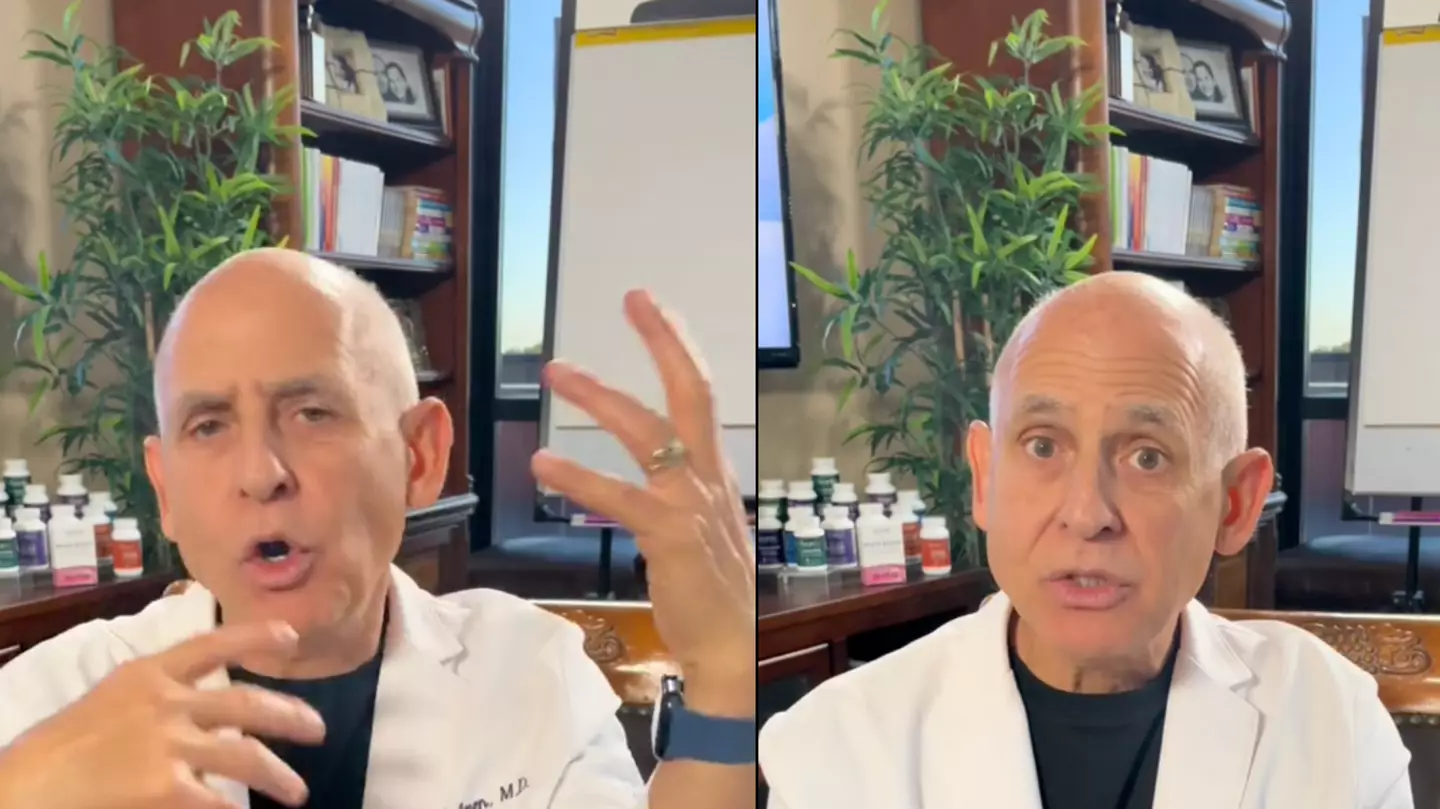
A top doctor has revealed the ‘big lie’ which people often tell themselves about drinking alcohol.
Let’s be honest, alcohol consumption is a huge part of our society. According to statistics form Drink Aware, around 48% percent of people over the age of 16 in the UK like to kick back and relax with a drink of their favourite tipple, whereas 19% of adults practice sobriety.
By now we’re all aware that binge drinking and spending your weekends getting absolutely leathered is not good for your wellbeing. But what about enjoying the occasional drink every now and again, surely that’s not too bad for us in the long run?
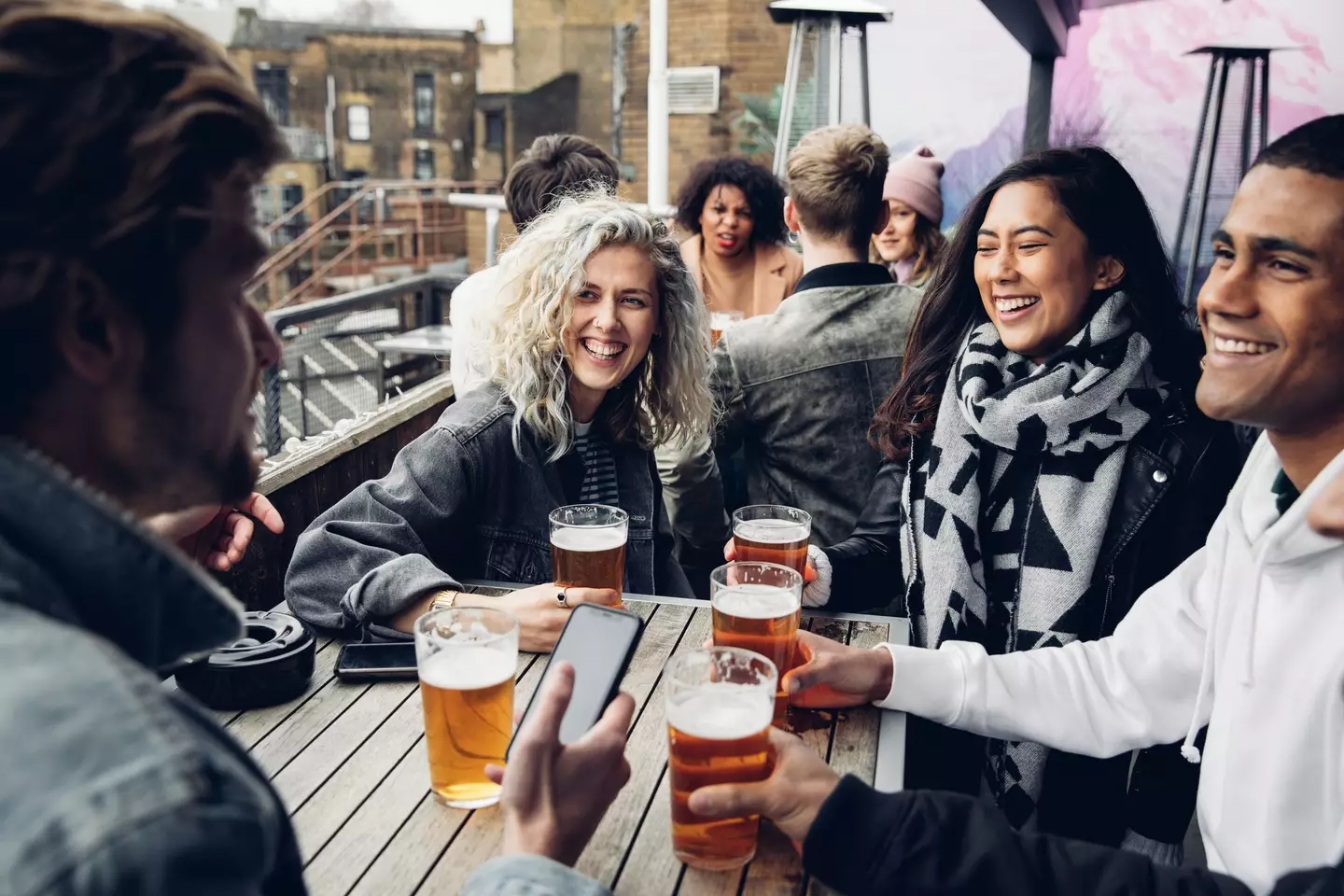
Most of us enjoy a drink (Getty Stock Images)
Unfortunately not. As with the vast majority of things in life, everything that we enjoy inevitably turns out to be bad for us.
Here to explain why even the occasional pint or single glass of wine is bad for us brain specialist Dr Daniel Amen, who often makes TikTok videos spreading awareness about the dangers of drinking culture.
“The lie, the big lie is that I should drink because one or two glasses of alcohol are good for me,” he began.
Amen noted the existence of studies which claim moderate drinking can be beneficial – such as research linking low red wine consumption to a reduced risk of heart disease – however he went on to claim these were backed by the ‘alcohol industry’ and that he believed the findings to be a ‘lie’.
Referencing his own studies on the human brain, Amen added: “People who drink have a smaller brain and when it comes to the brain, size matters.”
He then went on to discuss the relationship between drinking and brain function, adding that people who consume alcohol are more likely to have ‘disruptive’ white matter.
White matter is a term for the deeper brain tissues which contain nerves which connect different areas of our brain, allowing them to communicate which each other.
“People who drink, even a little bit, have more disrupted communication [in their brain],” he explained.
This isn’t the first time where Dr Amen has spoken about the effects drinking can have on the brains white matter, explaining in a video from last year that drinking alcohol is like ‘blowing up’ the connections in your brain.
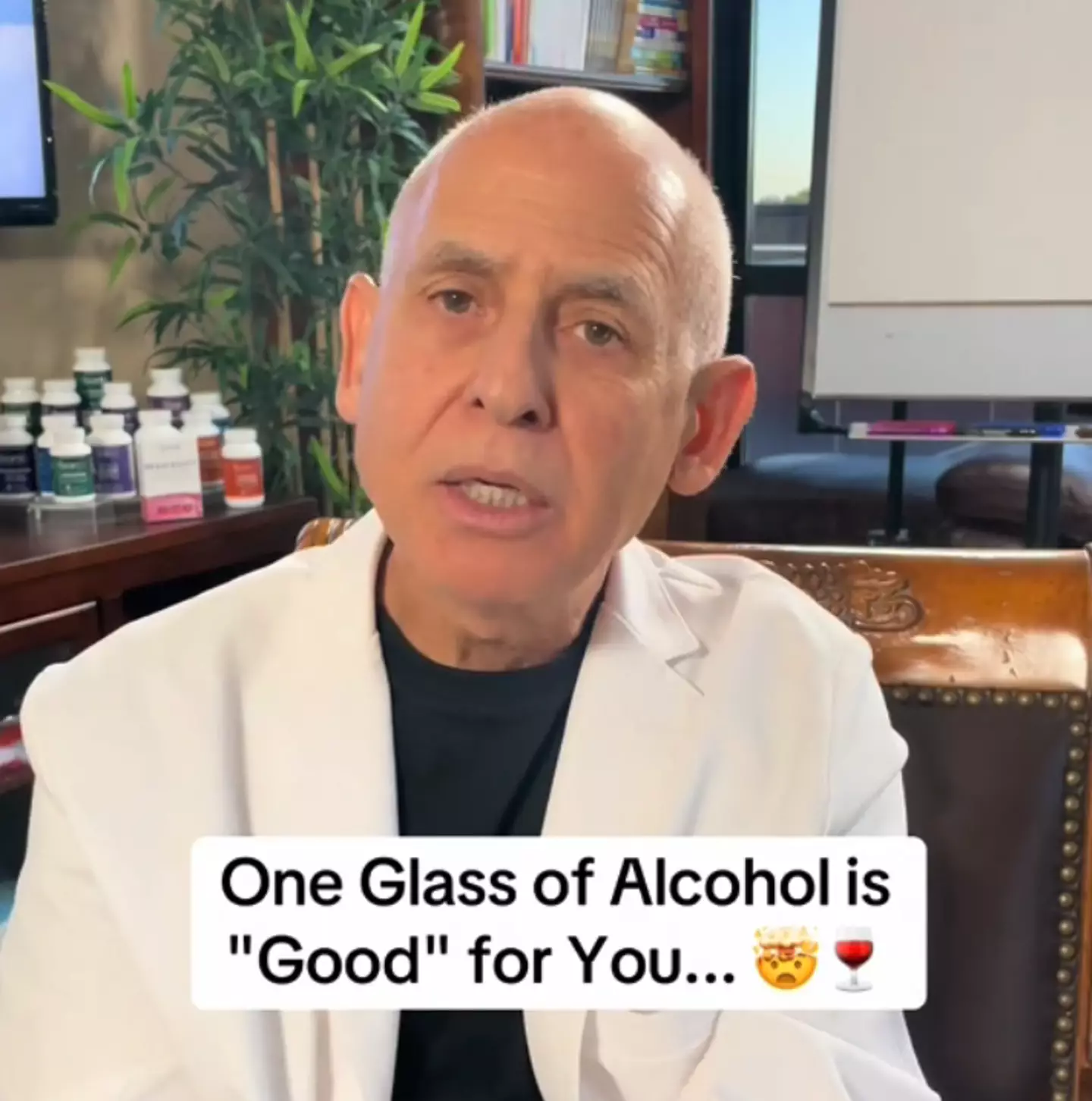
However Dr Amen has some bad news for us all (tiktok/docamen)
Dr Amen’s claims are also backed up by a recent study from the World Health Organisation (WHO) which revealed there is no level of alcohol consumption which is safe for our health.
“It doesn’t matter how much you drink – the risk to the drinker’s health starts from the first drop of any alcoholic beverage,” Dr Carina Ferreira-Borges said of the research.